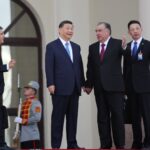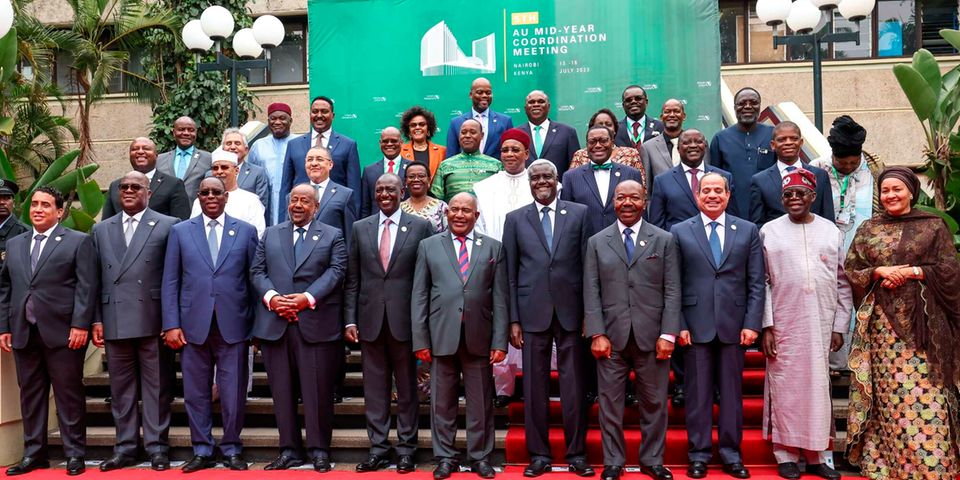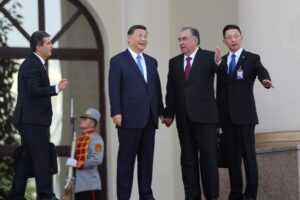In the past two weeks, I have read two reports about an old subject—on two African countries “turning East”. There was one about an African country “turning to the West” again, a newish government disgruntled over its heavy debt to China after the previous regime “turned East”. There was one about a country in the Horn of Africa continuing to “turn to the Gulf States” for strategic partnerships.
This story is nearly 63 years old. Before the Cold War ended in 1990, we used to turn East (usually to socialist or Communist states) or West (often to capitalist liberal-democratic states) for ideological reasons. In the past 33 years, with China, other countries in Asia and the Gulf states growing very rich, there are many directions to turn.
The constant here is that African countries are turning, reversing, pivoting and doing about-turns to the north, east, west or south. Two things are persistent. First, we are never still. Secondly, hardly any African country is ever accused or said to be “turning to Africa”.
It seems because we are never still and are always turning, we have become the proverbial rolling stone that gathers no moss. We are not stable and committed enough to create great wealth and a good society at home. True, there have been leaders in the past, and today, who have spoken about “we are not pro-East or pro-West; we are pro-Africa”, but that is all they do—talk. The most outspoken ones rarely do anything that’s seriously pro-African.
Pan-Africanism
When you hear a leader speaking about pan-Africanism and giving other Africans a rousing “mi casa su casa” (my house is your house) speech, be wary of him. If you see a video of the speech doing the rounds and popping up in half the WhatsApp groups you are in to great cheers, check before you take a flight to his country. You could be turned away at the airport because you don’t have the visa fee.
In 2013, African countries agreed at a meeting of the African Union (AU) to scrap visa requirements for all African citizens by 2018. The situation has improved as, at the end of last year, 48 countries out of the AU’s 54 member states were offering visa-free travel to nationals of at least one other African country.
However, when it comes to pure visa-free requirements, outside of members of economic blocs such as the East African Community (EAC) or the Southern Africa Development Community (SADC), only three countries—Benin, The Gambia and Seychelles—offer such entry free of charge to all (emphasis mine) African citizens.
Early this month, a BBC report, retelling an old truth, reported that flying within Africa is more expensive than just about anywhere else. Noting that it is often cheaper to fly from Africa to another continent than to an African country, it compared flying from the German capital, Berlin, to Turkey’s biggest city, Istanbul, which costs about $150 (Sh21,400) for a direct flight taking less than three hours.
But flying a similar distance in Africa—like between Kinshasa, the capital of the Democratic Republic of Congo, and Nigeria’s biggest city, Lagos—you will pay anything between $500 and $850, with at least one change, taking up to 20 hours.
Create 155,000 jobs
It cited the International Air Transport Association (IATA), the world trade body representing several airlines which make up about 83 per cent of world air traffic, arguing that if just 12 key countries in Africa worked together to improve connectivity and opened up their markets, that would create 155,000 jobs and boost those countries’ gross domestic product (GDP) by more than $1.3 billion. This is what “turning to Africa” would look like.
However, even with the EAC, the more developed of the regional economic bloc, you can only still fly mainly between the main international airports—the exception being Moi International Airport, in Kenya’s coastal city of Mombasa, where you have the odd flight originating from there to Uganda and Tanzania, and Jomo Kenyatta International Airport, where you can catch a flight to selected places like Arusha and Zanzibar, both in Tanzania.
Africans are still being arrested, extorted or arrested at our land borders for carrying anything larger than a rucksack. There are still airports and land borders on this fair continent where, if you have a new shirt, socks or underwear for personal use in that small rucksack, the customs officials will sniff them and make you pay a tax. You can only enter with old things for personal use if you want to avoid forking out the tax.
Mass expulsions of Africans from African countries other than theirs are larger than in Western and Asian countries, which usually make the headlines and get us all apoplectic, denouncing racism and demanding reparations for European colonial plunder.
Meanwhile, our leaders keep turning to the East, to the West, to the Gulf. From the East back to the West. From the West to the East. And in “new directions” like Israel, the Gulf states, Iran, Vietnam, Brazil…. As Eminem might sing, will the real African leaders please stand up?
Source: The Citizen











